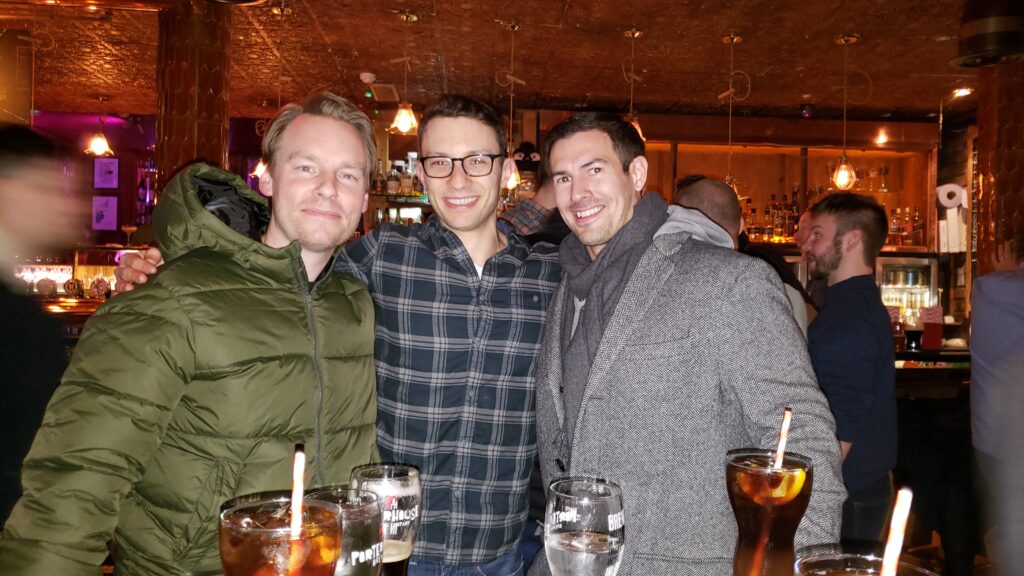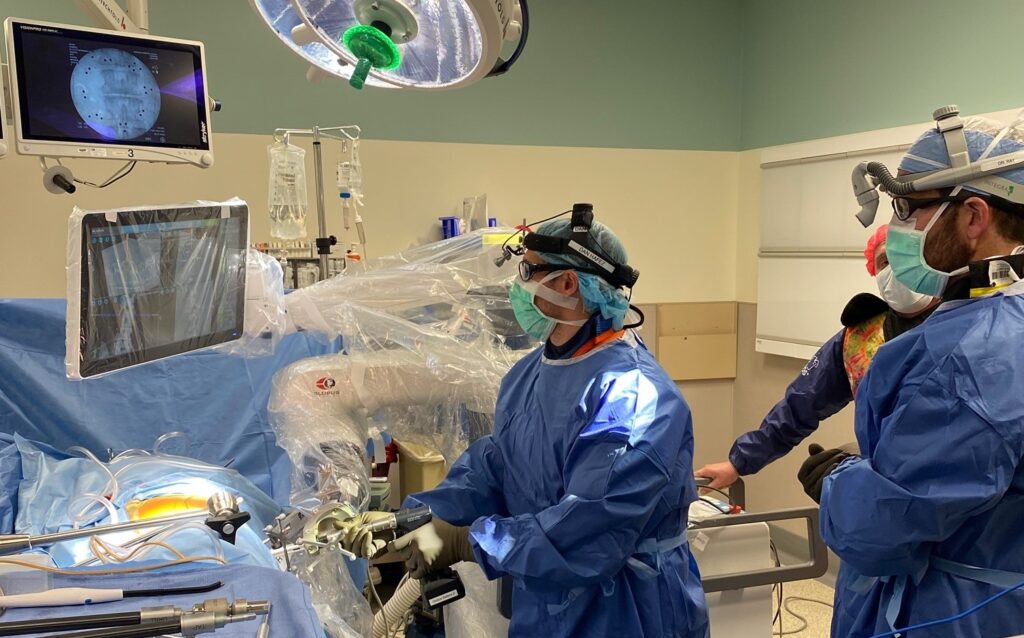Tell us a little bit about yourself and why you chose to pursue a residency in neurosurgery?
My interest in neuroscience begins with my father, a neurologist. As a child he would take me to the hospital Saturday mornings when he made rounds. His patients allowed me to observe their exam, which led to me incessantly ask question after question. These experiences piqued my interest in understanding how the brain functioned and guided my path into neurosurgery.
In college, I focused my studies in neuroscience while also working in the lab of the director of Neuroscience at the University of Illinois at Urbana/Champaign. I then went to medical school, where I obtained a PhD in neuroscience using gene therapy for the treatment of Alzheimer’s disease. It was during this time that I realized the potential of surgical intervention for functional restoration being an important future potential treatment for brain injury.

What do you enjoy most about neurosurgery and why?
What I enjoy most about neurosurgery is being able to urgently assess and intervene on a wide variety of complex patients. I find great satisfaction in the evaluation and management of each patient knowing that every detail may be critical, and where proper expedient medical management or surgical intervention may be the difference in life or death. Neurosurgery at WashU is a very busy program allowing for many meaningful and memorable patient interactions that I will be able to draw upon in my future career.
What attracted you to WashU?
I was interested in WashU for many reasons, but most importantly was the commitment to excellence demonstrated by the residents during my sub-internship. Although it was my first Sub-I as a MS4, it was obvious that the training program here was special.
The attendings and residents appeared to be truly invested in educating. The case volume and variety made it evident that residents would be well trained to manage all aspects of neurosurgery after graduation. Moreover, the department’s emphasis on research appealed to my academic aspirations.
While many programs across the country provided some aspects of what I was looking for, WashU stood out as a special program. Most importantly, the residents appeared to be a very happy and cohesive unit during my experience with them, indicating to me that they were enjoying their training.
What do you like to do in your free time?
In my free time I enjoy spending time with my wife and staying active. We enjoy biking through Forest Park, playing golf, and occasionally dining in appropriately socially distanced restaurants around the city.
Any advice for resident-applicants as they consider their options?
My advice for resident-applicants is to choose a program that fits your interests and is supportive of its residents. Residency is a long process. Your interests likely will change over time. If you find a high-volume program that supports its residents, such as WashU, you will be pushed to maximize your training regardless of what you ultimately choose to do.
I came into residency wanting to be a functional neurosurgeon-scientist investigating neurorestoration, and I am leaving to complete a spine fellowship with more of a clinical focus. However, throughout this process I was constantly encouraged and fully supported to find the path that was right for me. Knowing that I was actively being guided to be successful has made it easier to enjoy residency and focus on my learning and training, and less on what my career will be or where I will end up.
